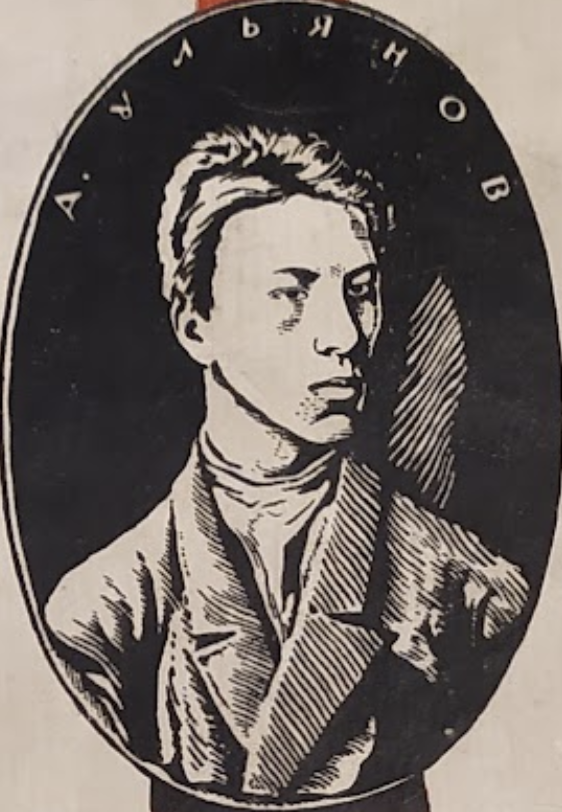-
Academic Moments: Conference Photos and Memories
This post will be brief—and somewhat nostalgically reflective—featuring just a few photographs from conferences I’ve attended alongside my friends and colleagues, naturally. Here we have BASEES 2023 and 2024, as well as my presentation at the University of Montreal’s conference on the history of non-mainstream socialism in 20th-century Europe.
-
“Cadres Decide Everything”—and They Shape History, Too
How non-party socialists built the core of the State Museum of the Revolution, only to be pushed aside “Cadres decide everything!”—the sharp catch-phrase that Stalin delivered on 4 May 1935 at the graduation of the military academies—was instantly elevated to a state slogan, and soon became the rationale for the Great Terror. If the “right”…
-
New Article in ‘Revolutionary Russia’ – soon
Meanwhile, read a brief exposition! In the forthcoming issue of Revolutionary Russia my article examines the earliest schemes for a Museum of the Revolution—those audacious late-nineteenth-century initiatives in which underground activists hoped to gather beneath the same roof what they called the “relics of the future”: leaflets, the stamps of clandestine presses, even the blood-stained…
-
Bolshevism and Revolutionary Tradition (?)
This text, located in the archive of P. E. Shegolev, one of the founders of the State Museum of the Revolution, is a leaflet authored by Vadim Bystryansky. A Bolshevik underground worker and historian, Bystryansky held several leading positions after the Bolshevik rise to power. Notably, he served as the director of the Leningrad Institute…
-
Veterans and Museums: Novorussky of the Idea of Revolutionary Museum
It is a passage from the same meeting minutes that took place on 11 January 1920 in Nikolaevsky Hall of Winter Palace attended by over 6000 people to inaugarate the Museum of Revolution. In this passage, Mikhail Novorussky, a veteran of Narodnaya Volya and a long-standing proponent of creating a museum of revolution takes the…
-
Zinoviev and Revolutionary Tradition-2: the Museum of Revolution
Stenographic Report of the Meeting Dedicated to the Opening of the Museum of Revolution January 11, 1920 Nikolaevsky Hall, Winter Palace Present: Over 6,000 people (According to: Museum of the Revolution. Collection. Petrograd. 1923. P. 69.) Comrade Zinoviev (applause): Comrades, on the second year of the proletarian revolution, the Petrograd Soviet – the Soviet of…
-
Zinoviev and Revolutionary Tradition
22 January 1919 Zinoviev’s speech at the opening of the monument in the Shlissel’burg to its prisoners …the working population of Petrograd, that it has fallen to us to erect a monument to people who will be the pride of world history. We are gathered here today in small numbers, but we deeply believe that…
-
How the State Museum of Revolution was Declared
9 October, 1919. Minutes of the session of the Petrograd council where the foundation of the museum of revolution was proclaimed. The first part of the text was made by the first director of GMR Mikhail Kaplan. Comrades, M. V. Novorussky, a Shlisselburg native who spent 17 years in the Shlisselburg Fortress, was supposed to…
-
Tensions in a Stalinist museum
` In 1935, the Lenigrad branch of the Communist Party cracked down on Museum of Revolution. This was the result of a wave of repressions provoked by the murder of Sergei Kirov that affected the entire country. Infamous Moscow trials took place 1935-36, when which Bukharin, Zinoviev, Kamenev, Pyatakov and many other old Bolsheviks were…

Hello,
this is the website of REVMUS, a research project by Nikolay Sarkisyan, funded by the European Commission under the Marie Skłodowska-Curie Actions.
The project explores the histories of Russian revolutionary museums.
It examines the projects and attempts to create museums of revolutionary history before 1917 within the Russian emigration and post-February Revolution in 1917, and extends the investigation into the 1920s and 1930s by focusing specifically on the State Museum of Revolution established in Petrograd in 1919.
For more ‘official’ info see the page ‘about the project’.
